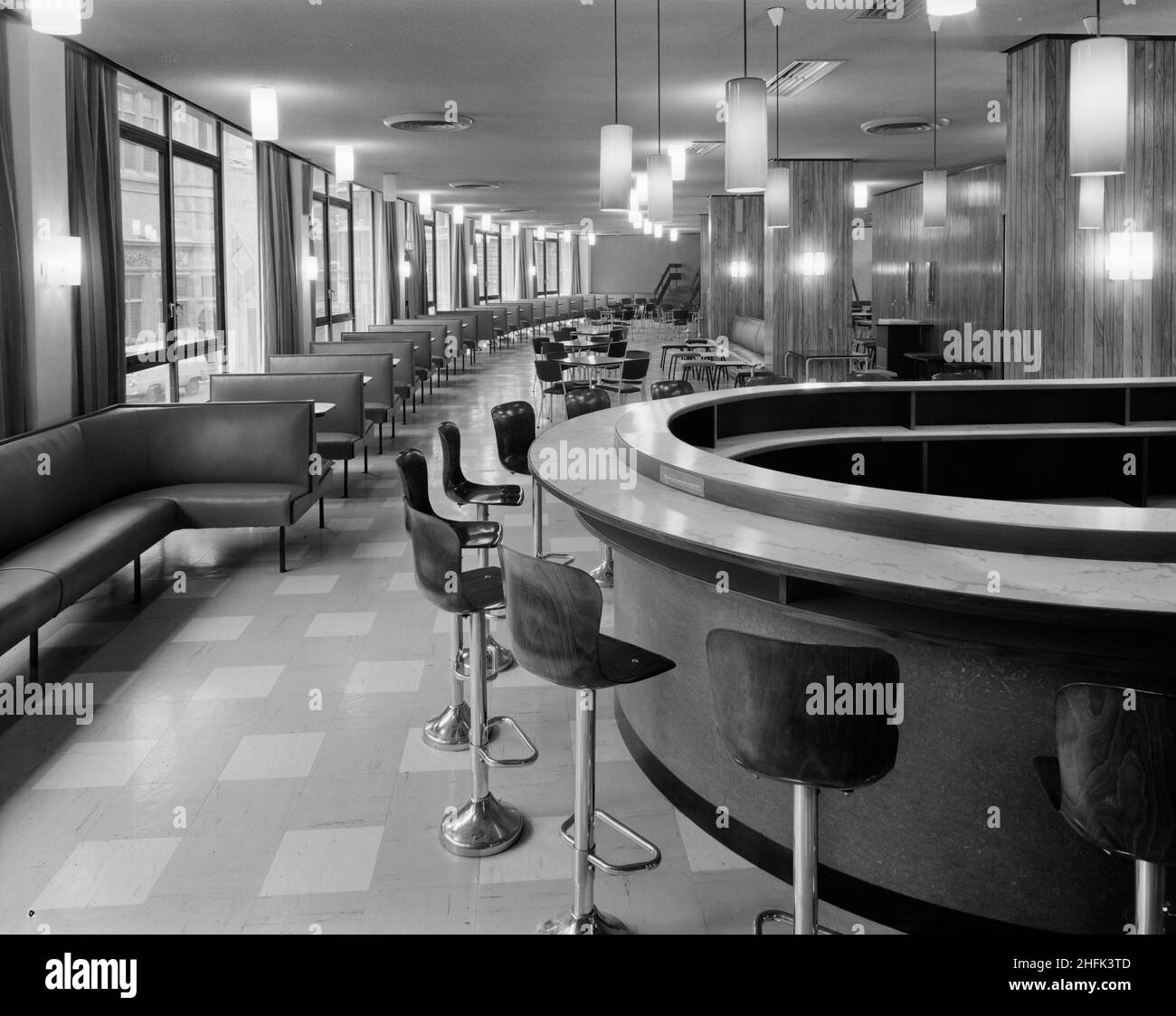Paternoster Square, City of London, 23/06/1965. A view of tables and seating in an empty restaurant at the Paternoster development. Work on the Paternoster development was carried out in a joint venture by John Laing Construction Limited, Trollope and Colls Limited, and George Wimpey and Company Limited. The scheme involved the redevelopment of a seven acre site on the north side of St Paul’s Cathedral. The site had been almost entirely devastated during an incendiary raid in December 1940. The development consisted of a series of office blocks, a shopping precinct, an extensive piazza

Image details
Contributor:
Heritage Image Partnership Ltd / Alamy Stock PhotoImage ID:
2HFK3TDFile size:
102.1 MB (4.1 MB Compressed download)Releases:
Model - no | Property - noDo I need a release?Dimensions:
6700 x 5326 px | 56.7 x 45.1 cm | 22.3 x 17.8 inches | 300dpiPhotographer:
Historic England Archive/Heritage ImagesMore information:
This image could have imperfections as it’s either historical or reportage.
Paternoster Square, City of London, 23/06/1965. A view of tables and seating in an empty restaurant at the Paternoster development. Work on the Paternoster development was carried out in a joint venture by John Laing Construction Limited, Trollope and Colls Limited, and George Wimpey and Company Limited. The scheme involved the redevelopment of a seven acre site on the north side of St Paul’s Cathedral. The site had been almost entirely devastated during an incendiary raid in December 1940. The development consisted of a series of office blocks, a shopping precinct, an extensive piazza and a three-level car park. The various blocks were named after former Bishops of London. The tallest block was 18-storeys in height and was called Sudbury House. The three 10-storey blocks were Courtenay, Walden and Grendall Houses, and the five-storey blocks were Laud, Sheldon and Bancroft Houses.